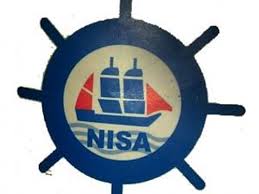Trans-border Trade Barriers: Why Agencies Should Purge Themselves

Over 400 obstacles to trans-border trade have been reported through the Trade Obstacles Alert Mechanism(TOAM) and they comprised lengthy clearing terms, transit checkpoints with unwarranted delays, harassment, exorbitant illegal fees, and demands for bribes, with far-reaching consequences.
It is certain however that the complete list may not have included missing documents in offices, delay caused by agencies’ staff in processing documents from one table to another amongst staff within the agencies, hijack of proposals of value from customers, etc. What this simply means is that agencies need to purge themselves of these ills associated with them as they seek solutions to the 400 hurdles which has been reduced by 49 percent by the Nigerian Shippers’ Council(NSC)..
The Executive Secretary of the Council, Hon. Emmanuel Jime also stated on Friday that various studies conducted along the borders of West African nations, had persistently highlighted the bottlenecks faced by traders, particularly in border crossings and Customs clearance processes.
Speaking during a Sensitisation Workshop held in collaboration with the ECOWAS Commission on the awareness for the creation of professional organisations and stakeholders in trade, at the council’s conference hall; observed that the trade barriers, which were so many, comprised lengthy clearing terms, transit checkpoints with unwarranted delays, harassment, exorbitant illegal fees, and demands for bribes, with far-reaching consequences.
Jime noted that the barriers, not only disrupt the seamless flow of goods but also pose a direct threat to regional integration endeavours.
The Executive Secretary, however, explained that more than 49 percent of them had been effectively addressed by national focal point representatives, supported by advisory services from the International Trade Centre (ITC).
He said: “In addition, the NSC’s Complaints Unit (CU) stands as a testament to our tireless efforts in resolving shipping-related issues. We understand that disputes and challenges can during trade transactions. Hence, we have dedicated resources and expertise to swiftly address these issues, ensuring that businesses can continue operations with minimal disruptions.
“Our commitment to fostering collaboration and harmonization among various stakeholders in the trade ecosystem is unwavering. We actively engage with other agencies, both within Nigeria and across West Africa, to align our efforts in promoting trade facilitation.
“NSC is at the forefront of advocating for the digitization of port processes. We recognise that the digital transformation of port operations is instrumental in streamlining trade, reducing bureaucracy, and enhancing transparency. Through advocacy and active, and consistently embarked on initiatives aimed at enhancing trade efficiency and reducing barriers to participation in the modernization of port systems, we aim to usher in an era of more efficient and responsive trade infrastructure.
“Our collective focus today revolves around a topic that is not only crucial but timely, given our region’s aspirations for economic growth and regional integration,” the NSC Boss explained further.Jime said that the fully operational status of TOAM in all 15 ECOWAS member states underscores its potential to drive transformative change and enhance regional trade.







